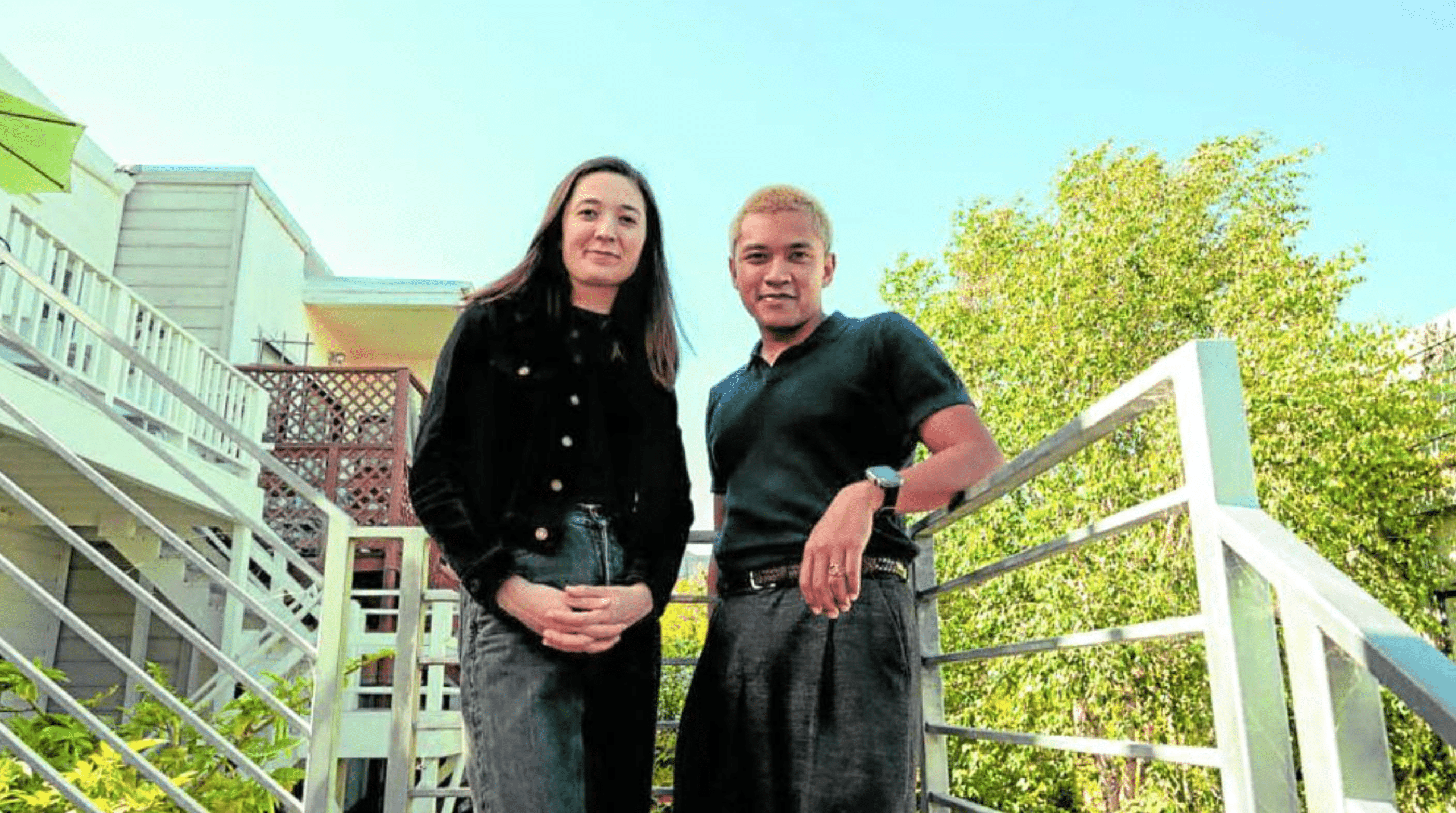esports definition
Deion Sanders took to social media to air his grievances about his son Shedeur Sanders' exclusion from the Heisman Trophy finalists. In doing so, Sanders seemed to embrace the narrative pushed by social media trolls comparing random stats between Shedeur and Oregon's Dillon Gabriel. While the passionate defense of his son was expected, many observers believe the Heisman voters got it right when selecting their finalists. Shedeur Sanders has indeed had a remarkable season, posting historic numbers for Colorado. His achievements include leading the FBS in completion percentage (74.2%) and being in the top five in categories such as completions per game, passing touchdowns, passing yards per game, and pass efficiency. Additionally, he broke numerous records, including becoming the 16th player in NCAA history to surpass 14,000 career passing yards while maintaining an elite touchdown-to-interception ratio. He has thrown a touchdown in 48 consecutive games, a streak that is unprecedented in both FBS and FCS history. These stats firmly place Shedeur among the best quarterbacks in the nation. Javascript is required for you to be able to read premium content. Thanks for the feedback.
NoneAP Trending SummaryBrief at 2:49 p.m. ESTNo. 25 UConn working on climbing back up poll, faces No. 15 Baylor
Government excels at NOT getting things done. But politicians promise more things anyway. Kamala Harris declared that our government would “build thousands of miles of fiber-optic cable!” This “Broadband Connectivity Agenda” was supported by “every House Republican on Energy and Commerce,” write Republican representatives. Three years later, not a single person has been connected. Why? Because, as Milton Friedman put it, “Few people spend other people’s money as carefully as they spend their own.” Private individuals and businesses constantly adjust to save time and money. But politicians, spending your money, have little interest in that. They routinely add rules that make everything take longer. You have to “hire certain people based on their color, their sex,” complains investor Matt Cole in my new video . “You already have a talent problem, now you’re looking at only being able to recruit from a very small minority of individuals. Then you have to do climate pledges. Then you have to hire from unions.” “But diversity is good,” I push back. “That doesn’t mean that you should hire someone because of their race or skin color ... You have all these companies that could actually (build broadband), but its unimplementable with the restrictions. They just walk away.” Eventually, I assume the government will install at least some broadband. By then, their cables may be unnecessary, because of satellite internet, like Starlink, which doesn’t require digging up streets. “They could do it literally today,” says Cole. “You could have devices in these people’s homes within the next couple of months.” Why don’t government officials do that? At first, Biden bureaucrats said, “Starlink failed to demonstrate that it had the technical and financial ability.” When it became clear that Starlink obviously did, the administration suddenly called it a monopoly. The FCC chair sneered, “Our economy doesn’t benefit from monopolies.” “First, they’re not functional, now it’s a monopoly,” says Cole. “The reality is, they didn’t want that to be the solution.” Didn’t want it to be because Biden Democrats didn’t want to give money to Elon Musk. Now Musk has a friend in government. Maybe things will change. But government giving contracts to friends is not good policy. It’s also not a smart way to get things built. Government pumped billions into “high-speed rail.” Fifteen years later, they’re still talking about the future. Bureaucrats wasted $500 million of your money on the solar company Solyndra, which then went bankrupt. They wasted millions more trying and failing to create “synthetic fuel.” More recently, Biden doled out $7 billion to build 500,000 EV charging stations. Two years later, they’ve built seven. Republicans joined Democrats in funding a CHIPS Act, meant to bring chipmaker jobs to America. It isn’t working. Most chips are still made in Taiwan. “Even if they get what they promise,” I point out to Cole, Congress appropriated “$53 billion for 115,000 promised jobs. Almost half a million dollars per job!” “You expect nothing else from government,” he replies.” With Republicans in charge, some say things will be better. But the problem isn’t just Democrats; it’s government. Trump’s steel tariffs destroyed American jobs by raising the price of steel. Politicians should just stop subsidizing certain businesses. Related Articles Commentary | Progressivism and the murder of a health insurance CEO Commentary | After so many years of failure, time’s up for California Democrats Commentary | Vince Fong: We don’t need Newsom to lecture us. We need him to listen to us. Commentary | Deregulation rather than fossil fuel controls needed to fix California insurance market Commentary | The FBI has been political from the start Maybe Elon Musk will convince Trump to do that. He’s actually tweeted the U.S. should “remove subsidies from all industries,” including his own! Good for him. That would be great. End the $30 billion handed to Big Agriculture, useless subsidies for “clean” energy, government-guaranteed loans politically to connected businesses, etc. Maybe Trump will end that part of the Deep State. But I won’t hold my breath. Once politicians are in power, they always want to do more. With your money. Every Tuesday at JohnStossel.com, Stossel posts a new video about the battle between government and freedom. He is the author of “Give Me a Break: How I Exposed Hucksters, Cheats, and Scam Artists and Became the Scourge of the Liberal Media.”In the last broadcast of ‘Whoever sends’ the América Televisión entertainment program, María Pía Copello starred in a moment as emotional as it was moving when she confirmed that her eldest son, Samuel Dyer Copello he would finish his school years and go to study outside the country. The announcement not only surprised viewers, but also overwhelmed the host with feelings, who burst into tears in the middle of the live program. This emotional event was shared by Copello with his set colleagues, including Carlos Vilchez who when asking about her son’s graduation, unleashed the sincere reaction of the presenter. Without a doubt, a moment that marked the broadcast and that reflected the vulnerability and love of a mother. María Pía Copello breaks down when confirming sad news about her eldest son The program ‘Whoever sends’ became the scene of an unexpected emotional scene when María Pía Copello could not contain her tears when talking about the departure of her eldest son, Samuel Dyer Copello who completes his secondary studies and is getting ready to continue his higher education abroad. The host, known both for her role on television and for her presence on social networks, shared her feeling of joy mixed with sadness at seeing her son take an important step in his life. The conversation began when Carlos Vilchez María Pía’s partner on the program, surprised her with a direct question about the end of Samuel’s studies. “Has your baby finished school today? The last school bell because now the hardest part is coming,” commented Vílchez, alluding to the fact that the school years had come to an end. That’s when Maria Pia Copello He expressed his emotion in a very sincere way. “Oh, how heavy! I don’t want to cry, I’m very sensitive about that. For the first time, I’m going through what you, Anna Carina, had to experience at some point, with Mica, who finished school and it’s the hardest part “The parents are going to understand me perfectly,” he commented through tears, referring to his sister. Anna Carina Copello who was also present on the program. María Pía’s words reflected the sadness of a mother who sees her son grow up and become independent, which can be both a source of pride and unease. Copello’s testimony was even more significant when accompanied by the words of his sister, Anna Carina, who showed an attitude of support in the face of Copello’s obvious emotion. Maria Pia . “I have mixed feelings, because I am happy because he is fulfilling his achievements, but sad because he is no longer going to be with us,” added the host, referring to the duality of emotions that accompany the departure of a child. Join our entertainment channelDescartes Announces Fiscal 2025 Third Quarter Financial Results
JEDDAH, Saudi Arabia (AP) — “My Driver and I” was supposed to be made in 2016, but was scuttled amid Saudi Arabia's decades-long cinema ban. Eight years later, the landscape for film in the kingdom looks much different — and the star of “My Driver and I” now has an award. Roula Dakheelallah was named the winner of the Chopard Emerging Saudi Talent award at the Red Sea International Film Festival on Thursday. The award — and the glitzy festival itself — is a sign of Saudi Arabia's commitment to shaping a new film industry. “My heart is attached to cinema and art; I have always dreamed of a moment like this,” Dakheelallah, who still works a 9-5 job, told The Associated Press before the awards ceremony. “I used to work in voluntary films and help my friends in the field, but this is my first big role in a film.” The reopening of cinemas in 2018 marked a cultural turning point for Saudi Arabia, an absolute monarchy that had instituted the ban 35 years before, under the influence of ultraconservative religious authorities. It has since invested heavily in a native film industry by building theaters and launching programs to support local filmmakers through grants and training. The Red Sea International Film Festival was launched just a year later, part of an attempt to expand Saudi influence into films, gaming, sports and other cultural fields. Activists have decried the investments as whitewashing the kingdom’s human rights record as it tightly controls speech and remains one of the world’s top executioners. With FIFA awarding the 2034 World Cup to Saudi Arabia this week, Lina al-Hathloul, a Saudi activist with the London-based rights group ALQST, said Crown Prince Mohammad bin Salman “has really managed to create this bubble where people only see entertainment and they don’t see the reality on the ground.” These efforts are part of Vision 2030, an ambitious reform plan unveiled in 2016 to ease the economy's dependence on oil. As part of it, Saudi Arabia plans to construct 350 cinemas with over 2,500 movie screens — by this past April, across 22 cities, it already had 66 cinemas showing movies from the local film industry, as well as Hollywood and Bollywood. (The Red Sea International Film Festival attracts a host of talent from the latter industries, with Viola Davis and Priyanka Chopra Jonas also picking up awards Thursday.) The country's General Entertainment Authority last month opened Al Hisn Studios on the outskirts of Riyadh. As one of the largest such production hubs in the Middle East, it not only includes several film studios but also a production village with workshops for carpentry, blacksmithing and fashion tailoring. “These facilities, when they exist, will stimulate filmmakers,” said Saudi actor Mohammed Elshehri. “Today, no writer or director has an excuse to imagine and say, ‘I cannot implement my imagination.’” The facilities are one part of the equation — the content itself is another. One of the major players in transforming Saudi filmmaking has been Telfaz11, a media company founded in 2011 that began as a YouTube channel and quickly became a trailblazer. Producing high-quality digital content such as short films, comedy sketches and series, Telfaz11 offered fresh perspectives on Saudi and regional issues. In 2020, Telfaz11 signed a partnership with Netflix to produce original content for the streaming giant. The result has been movies that demonstrate an evolution on the storytelling level, tackling topics that were once off-limits and sensitive to the public like secret nightlife in “Mandoob” (“Night Courier”) and changing social norms in “Naga.” “I think we tell our stories in a very simple way, and that’s what reaches the world,” Elshehri says of the changing shift. “When you tell your story in a natural way without any affectation, it will reach every person.” But the films were not without their critics, drawing mixed reaction. Social media discoursed ranged from pleasure that Saudi film were tackling such topics to anger over how the films reflected conservative society. As Hana Al-Omair, a Saudi writer and director, points out, there are still many stories left untold. “We certainly have a long time ahead of us before we can tell the Saudi narrative as it should be,” she said, acknowledging that there are still barriers and rampant censorship. “The Goat Life,” a Malayalam-language movie about an Indian man forced to work without pay in Saudi Arabia, is not available on Netflix's platform in the country. Movies that explore political topics or LGBTQ+ stories are essentially out of the question. Even “My Driver and I,” featured at the Red Sea festival alongside 11 other Saudi feature-length films, was initially too controversial. It centers on a Sudanese man in Jeddah, living away from his own daughter, who feels responsible for the girl he drives as her parents are absent. It was initially blocked from being made because of the relationship between the girl and the driver, filmmaker Ahd Kamel has said, even though it's not a romantic relationship. Now in 2024, the film is a success story — a symbol of the Saudi film industry's evolution as well as the growing role of women like Kamel behind the camera and Dakheelallah in front of it. “I see the change in Saudi cinema, a very beautiful change and it is moving at a wonderful speed. In my opinion, we do not need to rush,” Dakheelallah said. “We need to guide the truth of the artistic movement that is happening in Saudi Arabia.” Copyright 2024 The Associated Press . All rights reserved. This material may not be published, broadcast, rewritten or redistributed.
- Previous: esports anime
- Next: esports highest earners




